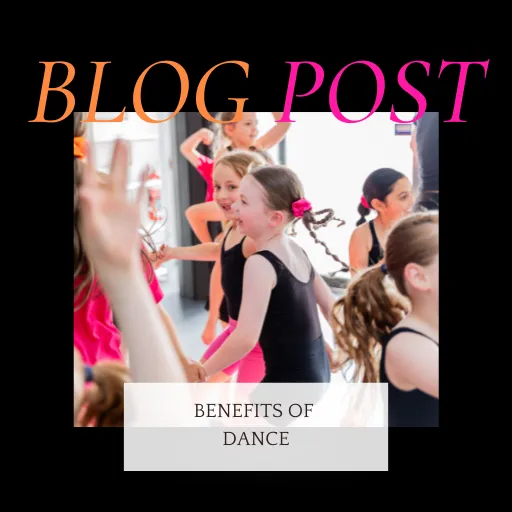
The Science Behind Dance: How It Helps with Child Development 🧠
The Science Behind Dance: How It Helps with Child Development 🧠
At KICO Dance Studios, we see the incredible benefits of dance every single day — and now science backs up what we witness in our studios! Dance isn’t just an art form; it’s a powerful tool that plays a huge role in child development. From physical growth to cognitive and emotional well-being, the impact of dance is profound. Let’s dive into the science behind it and explore how it helps children thrive.

1. Physical Development and Health
Dance is a full-body workout that promotes strong, healthy development in kids. It enhances cardiovascular fitness, muscle strength, and flexibility — all essential for a healthy growing body.
Cardiovascular Health: Dance routines that involve continuous movement and varying intensities improve heart health and stamina. A study in the American Journal of Preventive Medicine found that dance significantly enhances cardiovascular fitness in children.
Muscle Strength and Coordination: Dance builds strength across many muscle groups and improves coordination. Research from the International Journal of Sports Medicine shows that dance training boosts muscle tone, balance, and overall physical fitness.
Flexibility and Balance: Regular stretching and movement in dance classes helps children become more flexible and balanced — reducing the risk of injuries both in and out of class.
2. Cognitive Development and Brain Function
Dance doesn't just strengthen the body — it strengthens the brain too!
Memory and Learning: Memorizing choreography enhances memory and learning skills. A study in the Journal of Cognitive Neuroscience showed that dance supports neuroplasticity — the brain’s ability to adapt and grow.
Problem-Solving Skills: Working through tricky steps or creating routines boosts critical thinking and creativity.
Attention and Focus: Dance requires concentration, helping improve children's attention spans. Research in the Journal of Pediatric Psychology found that activities like dance can strengthen focus and executive functioning, supporting better academic performance.
3. Emotional and Social Development
Dance also makes a powerful difference in emotional health and social skills.
Emotional Expression: Moving to music offers children a healthy way to release emotions, reduce stress, and boost their mood. A study from The Arts in Psychotherapy found that dance can significantly improve emotional well-being in kids.
Confidence and Self-Esteem: Performing on stage helps build confidence. At KICO Dance Studios, we love watching our dancers grow from shy beginners into proud, confident performers — and that self-belief flows into every part of their lives.
Social Skills and Teamwork: Dance classes create a community where kids learn teamwork, communication, and build lasting friendships.
4. Sensory and Motor Development
Dance fine-tunes the body's sensory and motor systems in amazing ways.
Motor Skills: Dancing improves both fine and gross motor skills, which supports success in other sports and daily activities.
Sensory Integration: Dance combines visual, auditory, and kinesthetic inputs, helping children process and respond to sensory information more effectively. Research in the Journal of Physical Therapy Science supports dance as a tool for better sensory integration.
5. Lifelong Benefits
The lessons learned through dance stick around for life!
Lifelong Fitness: Building active habits early often leads to healthier lifestyles long-term, lowering the risk of chronic illnesses.
Cognitive Resilience: The mental challenge of dance can help protect against age-related cognitive decline, supporting brain health well into adulthood.
Emotional Well-being: Confidence, resilience, and social skills developed in dance continue to support emotional health for years to come.
Conclusion: Dance as a Holistic Development Tool
At KICO Dance Studios, we’re passionate about using the power of dance to support children’s growth in every way — physically, mentally, emotionally, and socially. Science clearly shows that dance is more than just an activity: it's a comprehensive tool for building strong, happy, capable young people.
When you enrol your child in dance, you’re giving them an experience that sets them up for success, both on and off the dance floor. We’re honoured to walk alongside them on that journey, celebrating every leap, spin, and step forward.
Ready to see the benefits of dance in action? Join us at KICO Dance Studios — where growth, confidence, and joy take centre stage.
